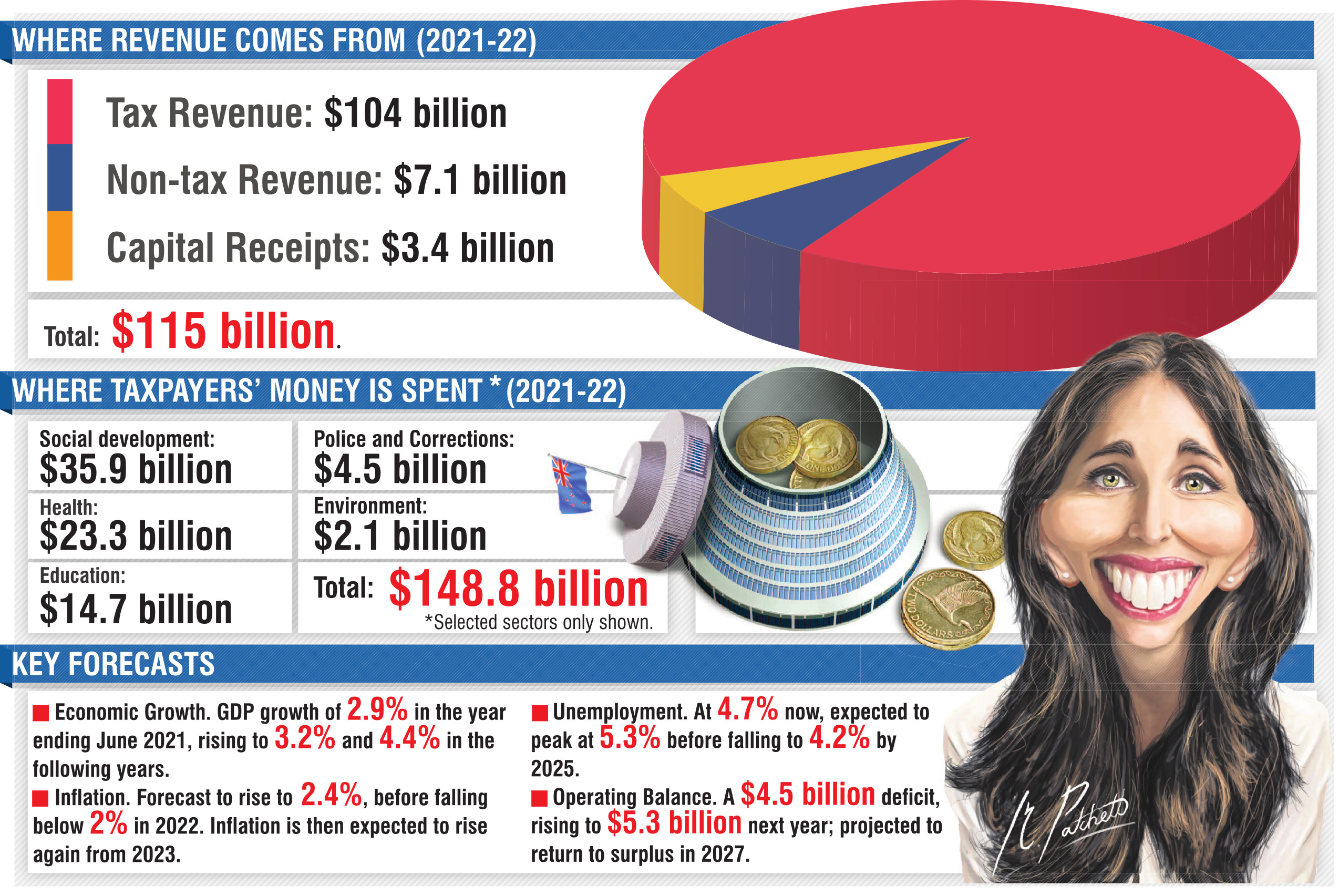Unemployment is nowhere near as high as predicted, economic growth is tracking well and accordingly government revenues have been better than anticipated.
The thinking in Budget 2021 contains a similar bet.
Mr Robertson has judged that the bulk of businesses are now able to stand, possibly unsteadily, on their own two feet, and their contribution to the national economy will track as well or maybe even better than it is now.
That has allowed him to turn his attention to the less well off, and weekly main benefit rates are set to increase by between $32 and $55 per adult by April 1, 2022.
Combine that with a hefty boost to student allowances and previously announced changes to minimum wage rates, that is a substantial amount of money being directed at the underprivileged — a traditional source of votes for Labour.

Mr Robertson has stressed in all his pre-Budget interviews that the world economy is extremely volatile and nothing can be certain in fiscal projections.
But this year, as last, he has plunged millions into the internal economy and hoped to create further insurance that core economic activity will be maintained as a result.
Exports, expected to grow on average by 5.8% over the next four years, will hopefully look after themselves as vaccination programmes roll out worldwide and consumers emerge from lockdown and start shopping for New Zealand-made goods again.
While that is the fingers-crossed part of the Budget, Mr Robertson has not left things entirely to chance.
While pitched as a "recovery" Budget, it is also a Covid-19 Budget, and $5billion has been salted away as a contingency should the pandemic surge back into New Zealand.
Mr Robertson said the Government had taken a balanced approach in Budget 2021.
"I acknowledge that our stronger economic position will mean there are people who argue we should be taking on more debt and running larger deficits than we present here today.
"There will also be people who argue we should be reducing debt faster, cutting government services and removing our support for the economy even as the global pandemic continues to rage.
"I believe Budget 2021 gets the balance right. It protects New Zealand’s strong position by keeping a lid on debt and tracking a responsible return towards surplus, while giving us the ability to make targeted investments where they are needed most to secure our recovery."
Many countries have forecast net debt to rise to more than 100% of GDP, and last year’s Budget contained debt projections approaching those dizzy heights.
The bounce-back in the New Zealand economy has been so rapid that the ratio is now projected to graze 50% before dropping back to more acceptable levels, a situation which afforded Mr Robertson the chance to splash more cash yesterday than anyone anticipated.
With big-ticket items looming in 2022 and 2023, such as the cost of health and education system reforms, implementation of a new Resource Management Act and climate change mitigation commitments, Mr Robertson needs the positive numbers in 2021 to remain as good or better for the next 12 months.











